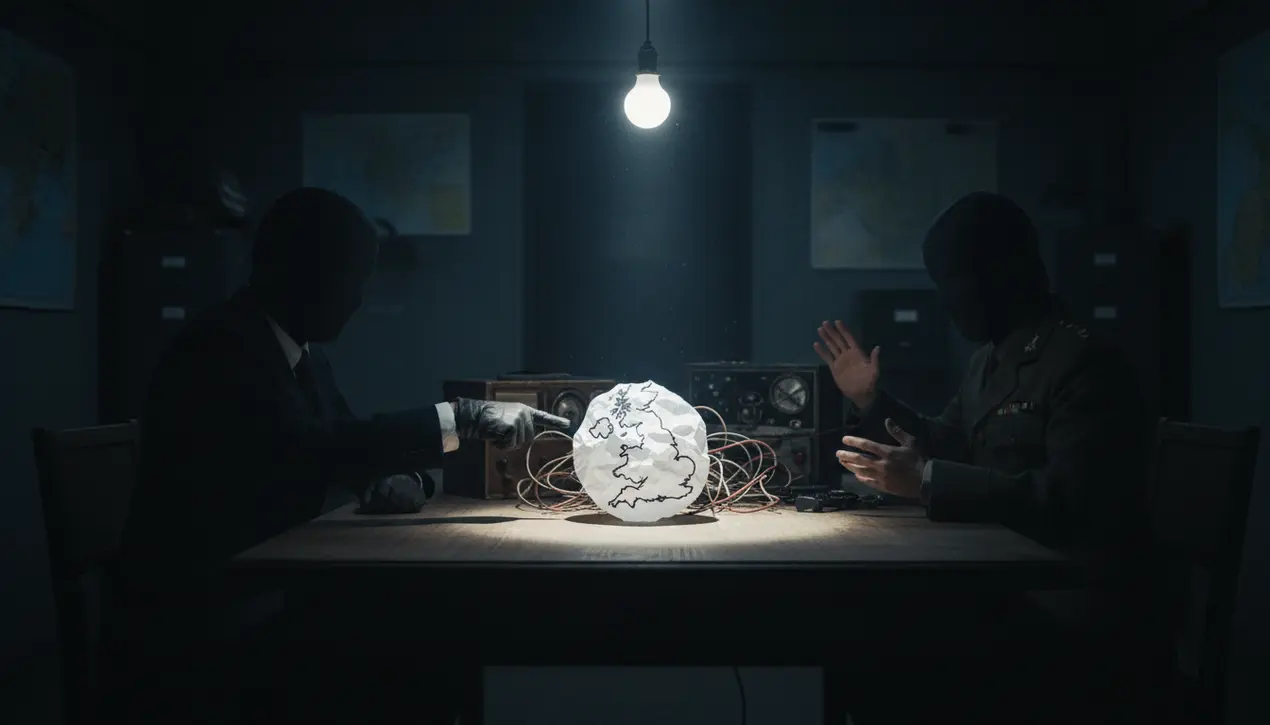
Politicsconflict & defenseIntelligence and Security
How Britain replaced the US as Russia’s villain of choice
OL
Oliver Scott
4 hours ago7 min read
The geopolitical chessboard between London and Moscow has entered a phase of unprecedented hostility, with Britain emerging as Russia's primary antagonist in a dramatic shift from historical norms where the United States traditionally held that position. This escalation isn't merely rhetorical; it represents a calculated reorientation of Kremlin strategy, leveraging Britain's support for Ukraine as a central narrative to consolidate domestic opinion and test alliance cohesion.The recent, and swiftly debunked, allegation that British intelligence attempted to coax Russian pilots into defecting fits a now-familiar pattern of psychological operations and information warfare, designed to portray the UK as a reckless, destabilizing force. This particular claim, while lacking credible evidence, serves multiple strategic purposes: it aims to demoralize Russian military personnel by suggesting Western infiltration is imminent, while simultaneously providing a pretext for further internal security crackdowns.The broader context of this manufactured rivalry stretches back through the Great Game of the 19th century and the Cold War espionage duels, but the current iteration is distinctly shaped by the post-2014 landscape following the annexation of Crimea. Britain's unwavering commitment to arming Ukraine, including providing Storm Shadow missiles and leading training initiatives, has positioned it as the most operationally significant European power in the conflict from Moscow's viewpoint.Analysts suggest that by focusing its propagandistic fire on the UK, the Kremlin seeks to create a fissure within the NATO alliance, potentially isolating London from more cautious continental partners like France and Germany, who maintain different diplomatic channels. Furthermore, the specific nature of the accusations—from involvement in the Nord Stream sabotage to directing 'terrorist' raids—is designed to resonate with a Russian populace steeped in state-controlled media, creating a tangible, proximate villain that simplifies a complex multilateral conflict into a more digestible bilateral feud.The consequences of this targeted vilification are profound, elevating the risk of direct, albeit deniable, retaliatory actions against British assets or personnel, both digital and physical. It forces the UK's intelligence services, particularly MI6 and GCHQ, into a heightened state of alert, recalibrating their risk assessments for everything from cyber-attacks on critical national infrastructure to the potential for 'false flag' operations designed to implicate Britain. This new cold war, fought in the shadows of Eastern Europe and the information streams of the internet, demonstrates a fundamental recalibration of power dynamics, where a middle-weight European power can be elevated to arch-nemesis status as part of a larger, more dangerous game of geopolitical brinkmanship that shows no sign of abating.
#lead focus news
#Russia
#United Kingdom
#espionage
#Ukraine war
#diplomatic relations
#intelligence operations
Stay Informed. Act Smarter.
Get weekly highlights, major headlines, and expert insights — then put your knowledge to work in our live prediction markets.
Comments
Loading comments...
© 2025 Outpoll Service LTD. All rights reserved.